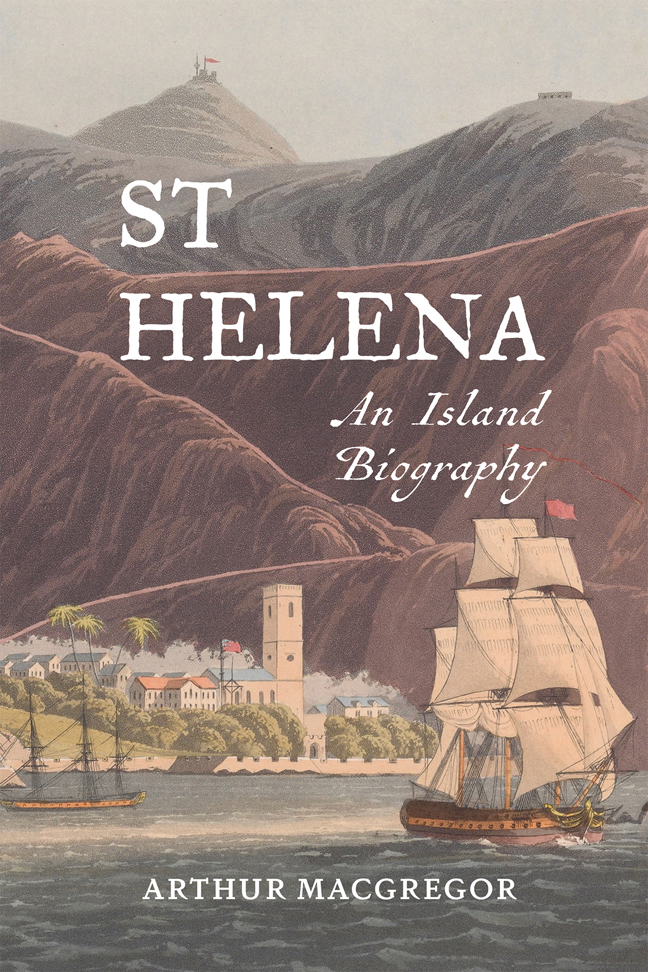Book contents
- Frontmatter
- Contents
- List of Illustrations
- Photo credits
- Preface
- Acknowledgements
- 1 Genesis
- 2 The breach: Europe and St Helena collide
- 3 Population and environment: early impacts
- 4 Population and environment: asserting control
- 5 ‘The citadel of the South Atlantic’
- 6 Scientists in transit: St Helena as a site for scientific investigation
- 7 Napoleon on St Helena
- 8 Later detainees, 1800s and 1900s
- 9 A place in the modern world
- Appendix: Governors of St Helena
- Bibliography
- Index
8 - Later detainees, 1800s and 1900s
Published online by Cambridge University Press: 21 February 2024
- Frontmatter
- Contents
- List of Illustrations
- Photo credits
- Preface
- Acknowledgements
- 1 Genesis
- 2 The breach: Europe and St Helena collide
- 3 Population and environment: early impacts
- 4 Population and environment: asserting control
- 5 ‘The citadel of the South Atlantic’
- 6 Scientists in transit: St Helena as a site for scientific investigation
- 7 Napoleon on St Helena
- 8 Later detainees, 1800s and 1900s
- 9 A place in the modern world
- Appendix: Governors of St Helena
- Bibliography
- Index
Summary
The death of Napoleon and the consequent withdrawal of perhaps half of the island's population – all those who had been involved more or less directly in his incarceration – brought about one of the recessions in the island's economy that followed repeatedly in the later years of the nineteenth century. When Darwin passed through the island in 1836 the guide he employed probably spoke for the majority of the population when he looked back on the ‘fine times’ of the Napoleonic interlude as something of a golden age.
For the British government the role of the island in isolating the former emperor from contact with the outside world was judged to have been – with the possible exception of the cost of it all – entirely satisfactory, so it was perhaps inevitable that the name of St Helena should be invoked again whenever the need arose for secure and suitably remote accommodation. For nineteenth-century politicians and colonial administrators such a choice would have been considered expedient and routine. As late as 1968, when King Goodwill Zwelithini acceded to the throne of the Zulu nation at the age of fifteen and was judged to be at risk from his opponents until he reached his majority, it seemed appropriate that until the moment for his coronation in 1971 a refuge could be found for him on St Helena. His grandfather, Dinuzulu, had been accommodated there more formally some eighty years earlier (see below). More extraordinary is the survival even today of a perception in Whitehall that the island might still reasonably function as an appropriate sanctuary – or a prison – in which politically problematical individuals might conveniently be sequestered.
Policing the slave trade
Having witnessed the introduction of slavery from the earliest years of its human occupation and having itself become a regular consumer of enslaved Africans and others – it will be remembered that the EIC had long accepted the principle that no plantation in the tropics could be sustained without them – there was a certain piquancy in the choice of the island as a key base in enforcing its prohibition in later years. Within a year of the passage of the Act for the Abolition of the Slave Trade (1807), the Royal Navy had established a West Africa Squadron with the aim of suppressing the trade by sea.
- Type
- Chapter
- Information
- St HelenaAn Island Biography, pp. 166 - 189Publisher: Boydell & BrewerPrint publication year: 2024

